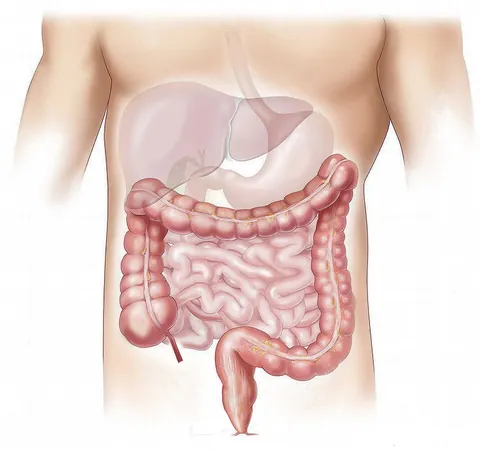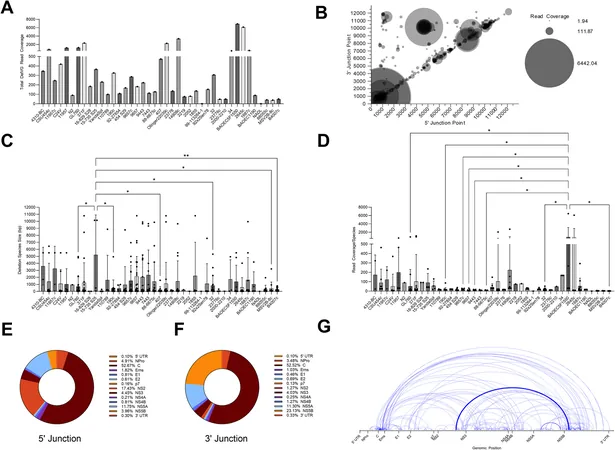
Shocking Discovery: How Your Gut Health and Food Insecurity Could Be Harming Your Brain
2025-06-18
Author: Yu
The Startling Link Between Gut Microbiome and Cognitive Health
In a groundbreaking study from Mount Sinai researchers, a surprising connection between gut microbiome composition and the risk of cognitive impairment in adults has emerged, shedding light on how biological factors intertwine with social issues like food insecurity.
Food Insecurity: A Hidden Danger?
This research is the first of its kind to focus on food insecurity's role in exacerbating the impact of gut microbiome imbalances on cognitive health. Published in the esteemed journal npj Aging, the study delved into how limited access to adequate food might influence gut health and brain function.
The Findings Are Eye-Opening!
The findings reveal startling trends: adults exhibiting lower microbial diversity and specific gut bacteria imbalances are significantly more likely to suffer cognitive decline. Even more alarming is the independent association of food insecurity with poor gut health and cognitive performance.
Shoshannah Eggers, Assistant Professor of Epidemiology at the University of Iowa, highlighted that over 12% of U.S. households experienced food insecurity in 2022—a striking jump from previous years. This growing concern is a wake-up call about the serious health implications tied to nutritional access.
How Food Insecurity Affects Brain Health
Dr. Eggers, who is also a co-director of a Microbial Exposomics Lab, notes, "Food insecurity consistently links to adverse health outcomes. Understanding how gut health interacts with social conditions paints a fuller picture of risks contributing to cognitive decline."
A Robust Study with Significant Insights
The study analyzed 360 participants using data from the Survey of Health in Wisconsin, which included information on food insecurity, risk of cognitive impairment, and a specialized test to identify gut bacteria.
Using sophisticated machine learning, researchers identified specific groups of gut bacteria associated with cognitive impairment. Remarkably, these associations varied significantly between food-secure and food-insecure groups, suggesting that interventions aimed at improving gut health could be more effective if tailored to an individual's food security status.
A Call to Action for Public Health!
Vishal Midya, the senior author of the study, emphasized this research's implications: "Food insecurity isn't just a socioeconomic dilemma; it involves biological factors that may shape brain health through gut microbiome changes."
As the world grapples with a rising tide of cognitive impairment, especially among older adults, this study advocates for a unified public health strategy that integrates nutritional support and gut health interventions. Such approaches could prove vital in combating dementia risks, particularly in vulnerable groups.
Looking Ahead: A New Front in Cognitive Health?
This research paves the way for innovative public health strategies and targeted therapies that combine dietary initiatives with microbiome-focused treatments, potentially revolutionizing our approach to preventing cognitive decline. As we uncover more about this intricate relationship, the fight against dementia may evolve to encompass not just the brain, but the gut as well.





 Brasil (PT)
Brasil (PT)
 Canada (EN)
Canada (EN)
 Chile (ES)
Chile (ES)
 Česko (CS)
Česko (CS)
 대한민국 (KO)
대한민국 (KO)
 España (ES)
España (ES)
 France (FR)
France (FR)
 Hong Kong (EN)
Hong Kong (EN)
 Italia (IT)
Italia (IT)
 日本 (JA)
日本 (JA)
 Magyarország (HU)
Magyarország (HU)
 Norge (NO)
Norge (NO)
 Polska (PL)
Polska (PL)
 Schweiz (DE)
Schweiz (DE)
 Singapore (EN)
Singapore (EN)
 Sverige (SV)
Sverige (SV)
 Suomi (FI)
Suomi (FI)
 Türkiye (TR)
Türkiye (TR)
 الإمارات العربية المتحدة (AR)
الإمارات العربية المتحدة (AR)